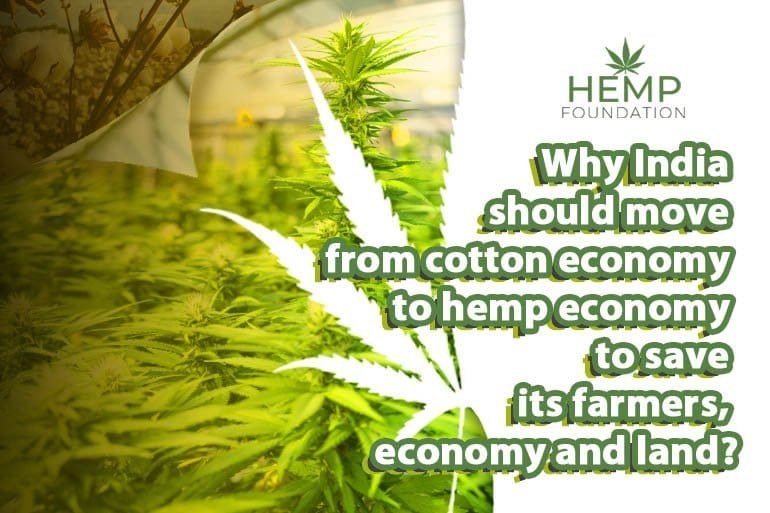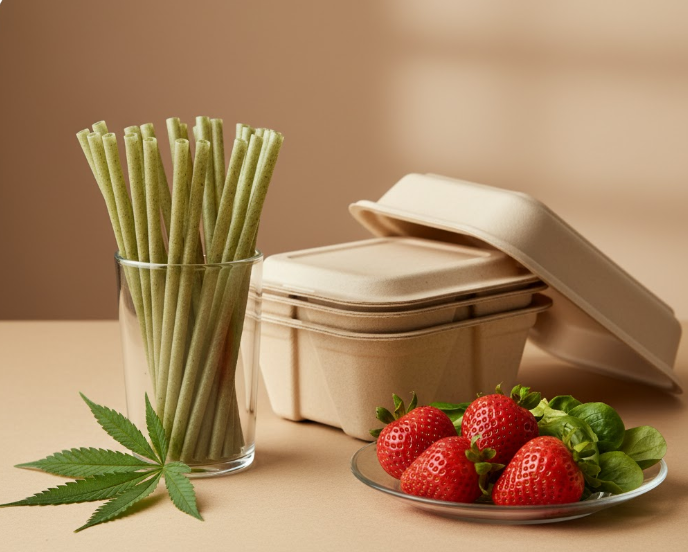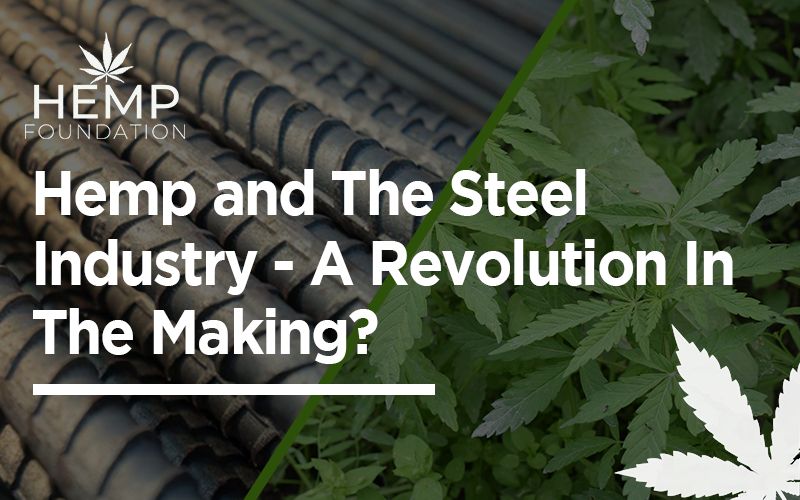Why India should move from cotton economy to hemp economy to save its farmers, economy and land?
[vc_row][vc_column][vc_column_text]Cotton is the popular option for producing clothes worldwide but with the increasing awareness about the environment, recent studies reveal some alarming concerns. These studies prove that cotton is tremendously affecting the environment.[/vc_column_text][/vc_column][/vc_row][vc_row][vc_column][vc_column_text]To the people who are yet unaware of marvels of hemp, the term brings to mind a picture of groups of hippies, cuddled over a fireplace in some remote forest region smoking – yes, Hemp – and dozing over each other. We are well familiar with this popular notion. While this erroneous image of Hemp is widely popular, the glorious history of this wonderful plant is obscured over several decades.
Hemp holds the title for probably the very first textile fiber plant cultivated by humankind and archaeological proofs suggest that its cultivation and use as textile had begun as early as 8,000 BC – or even before that.
Due to its curative nature, the hemp also enjoyed a distinguished stature in ancient and folk physicians as a medicine to prevent and cure various health issues like difficult childbirth, convulsions, rheumatism, arthritic joints, dysentery, and insomnia. China started hemp agriculture 6,000 years ago and was the first country to make paper with hemp. The crop still plays a vital role in Chinese remedies.
Other countries that producing hemp includes Chile, Russia, Spain, France, etc. Did you know that hemp also acted as a currency in America until the dawn of the nineteenth century? Now the natural question arises – what gave it a bad reputation?[/vc_column_text][/vc_column][/vc_row][vc_row][vc_column][vc_column_text]
Adverse effects of cotton on the environment
[/vc_column_text][vc_column_text]Cotton consumes as high as 10% of global agricultural chemicals. Moreover, 25% of insecticides are also used for cotton farming. These harmful pesticides get collected in land and water bodies, degrading their quality, and also risking marine life. Did you also know that even we, human beings, also end up being at the risk by consuming pesticide-infected marine food like fish, crabs, etc?
Pesticides and herbicides are two major hazardous substances that cause high-scale damage to the environment affecting multiple layers of the ecological cycle. These substances decrease biodiversity, pollute water bodies, and degrade soil quality. It risks many marine animals including some of the rare species. It also makes us human beings prone to many health risks.
There is a natural, agreeable, and eco-friendly solution to this issue. The hemp plant is highly resistant to diseases and pests and needs almost zero pesticides. Thus, hemp takes these hazardous chemicals out of the equation and protects the environment, farmers, consumers, and marine life.
The considerable amount of chemical substances used by cotton farming damages the quality of soil affecting its overall fertility.[/vc_column_text][/vc_column][/vc_row][vc_row][vc_column][vc_column_text]
Hemp produces more fiber than cotton, a boon for small farmers
[/vc_column_text][vc_column_text]It is a no-brainer that per acre yield plays a vital role in determining the return value of any crop. Comparing this point we would find a huge difference between cotton and hemp. While farmers can produce only 1190 pounds of cotton fiber from each acre of land the hemp gives a yield of 2650 pounds of fiber per acre. In other words, hemp offers 1400+ pounds additional fiber per acre. It empowers the small farmers to increase their income potential even with smaller farms.[/vc_column_text][/vc_column][/vc_row][vc_row][vc_column][vc_column_text]
Cotton depletes huge volume of water
[/vc_column_text][vc_row_inner][vc_column_inner width=”1/6″][/vc_column_inner][vc_column_inner width=”2/3″][tm_image align=”center” image=”13437″][/vc_column_inner][vc_column_inner width=”1/6″][/vc_column_inner][/vc_row_inner][vc_row_inner][vc_column_inner][vc_column_text]Copious amounts of water cotton consume is mainly fed through irrigation – especially in arid regions. In this way, it lowers down the water levels which is a huge setback not only for the environment but for human beings as well. In fact, in many areas, huge water bodies are converted into a giant irrigation system for cotton.
The wisdom calls for immediately implementing proactive measures to avoid the dire situations of water scarcity, or at least minimize its effects. One of the best ways is to replace the major water consuming crops with ideal substitutes. Cotton finds a place in the top portion of this list as it consumes a very high amount of water – so much so that in some places entire water bodies are converted into huge irrigation channels just for cotton farming.
Hemp on the other hand requires comparatively very less amount of water while offering a greater yield per acre of land. So, it offers double benefits. Lower water consumption makes it eco-friendly while better yield brings more prosperity to farmers, especially those having small farms.[/vc_column_text][/vc_column_inner][/vc_row_inner][/vc_column][/vc_row][vc_row][vc_column][vc_column_text]
Hemp assures better income potential
[/vc_column_text][vc_column_text]Demand and utility value are two major factors that determine the economic viability of a crop. Today hemp is used to produce 25000+ different products used in diverse aspects – right from food and beverages to personal care, clothes, and even furniture.
Secondly, near every part f, this wonderful plant is useful and possesses a good economical value which maximizes the returns on every yield. It can positively transform the income capacity of small farmers as they can earn more income out of their small farms without buying an additional stretch of property or investing in rotational crops. By educating Indian farmers about different applications of hemp and marketing tactics we can make their lives better and onboard them on the way to gradual economic and social prosperity,[/vc_column_text][/vc_column][/vc_row][vc_row][vc_column][vc_column_text]
Hemp can empower the Indian womenfolk of rural areas
[/vc_column_text][vc_column_text]One of the major facets of the economy is how it helps the weaker and vulnerable sections of society. From this point of view Hemp can do wonders to strengthen the rural womenfolk of India. Rural women of India possess excellent cloth-making skills.
Hemp fiber is used to make different clothes and the studies also prove that hemp possesses the ideal qualities to produce strong, durable, breathable, and skin-friendly clothes. With some planning, training, and backing, the rural women of India can be engaged in hemp cloth-making that will not only increase the household income but will also enhance their social position as active breadwinner.
Most importantly, it would allow them to take better care of third children ensuring their healthy progress. Due to the more concerned and caring nature of women, it is often said and rightly so that empowering women is the best way to reform society. In this way, hemp can be a harbinger of positive social change in Indian society.[/vc_column_text][/vc_column][/vc_row][vc_row][vc_column][vc_column_text]
Hemp can be a great eco-friendly substitute for paper industry
[/vc_column_text][vc_row_inner][vc_column_inner width=”1/6″][/vc_column_inner][vc_column_inner width=”2/3″][tm_image align=”center” image=”13440″][/vc_column_inner][vc_column_inner width=”1/6″][/vc_column_inner][/vc_row_inner][vc_column_text]Hemp not only offers a better substitute for cotton but also acts as an eco-saviors in other ways. The Paper industry is among the major causes behind cutting down numerous trees. It significantly harms the environment and forests. Hemp provides a much better, eco-friendly solution to this issue.
With just a single acre of hemp cultivated land, one can produce the same quantity of paper that is produced from 4 acres of the tree. Moreover, hemp paper has tremendous recycling capabilities that can go up to 8 recycling phases, almost 3X the recycling capabilities of conventional paper. Combining these two factors prove that hemp paper can significantly save the environment.[/vc_column_text][/vc_column][/vc_row][vc_row][vc_column][vc_column_text]
Quicker time to market
[/vc_column_text][vc_column_text]A major concern of any farmer is the time taken for the crop to yield. On this front, hemp is way ahead of cotton. Hemp is a fast-growing crop that takes only 4 months to yield which not only means a shorter time to market but also significantly reduces the input resources, efforts, and attention. Moreover, it is especially beneficial for the small Indian farmers who mainly require a regular and frequent stream of income.
Cotton, on the other hand, takes up to half a year to yield. We also need to consider the fact that cotton needs more water and pesticides. A little mathematics tells that a farmer needs to spend more on cotton farming for a longer period to get a significantly less yield per acre of land as compared to hemp. Thus hemp is the winner on this front.[/vc_column_text][/vc_column][/vc_row][vc_row][vc_column][vc_column_text]
Cotton harms soil quality, hemp improves it
[/vc_column_text][vc_column_text]Cotton farming requires pesticides, insecticides, and herbicides that penetrate deep into the soil and adversely affect its quality and fertility. The high popularity and huge demand for cotton across the globe have also resulted in massive-scale cotton farming which has multiplied the adverse impact on the environment. As opposed to it, the hemp not only requires almost zero pesticides but also proactively enhances the soil quality.
The roots of hemp grow deep inside the soil that helps in minimizing soil erosion and holding the soil together. It facilitates the growth of delicate plants in the later periods. Due to its good biomass-producing capabilities, Hemp also makes the soil more fertile by providing essential nutrients to it. As it produces a good volume of biomass, hemp farming constantly improves the soil quality over some time.[/vc_column_text][/vc_column][/vc_row][vc_row][vc_column][vc_column_text]
Hemp reduces carbon footprint
[/vc_column_text][vc_column_text]One of the major general concerns of environment-conscious people to reduce carbon footprint. Hemp can also help on this front as it possesses technical qualities to suck out the atmospheric carbon dioxide. Studies show that hemp has a natural capability to absorb much higher amounts of carbon dioxide (Co2) when compared to various other plants. Talking about the figures – every single ton of hemp farm can eliminate as high as 1.63 tons of Carbon dioxide.[/vc_column_text][/vc_column][/vc_row]





